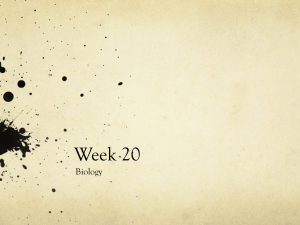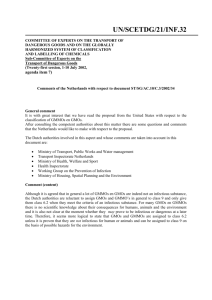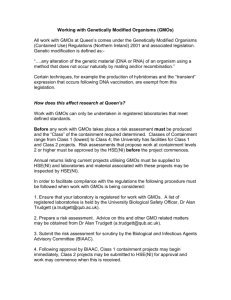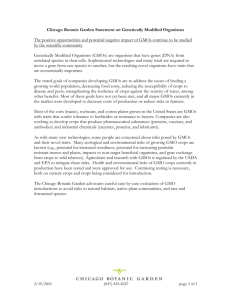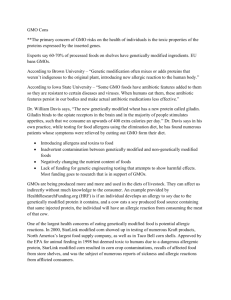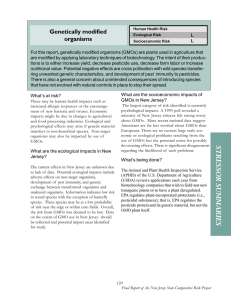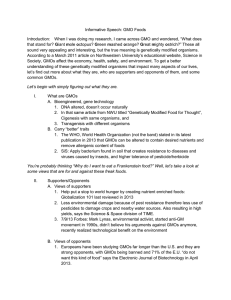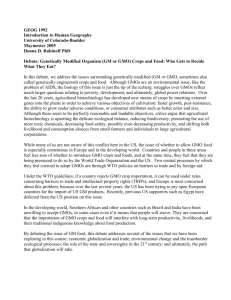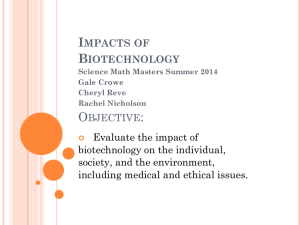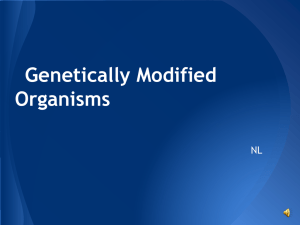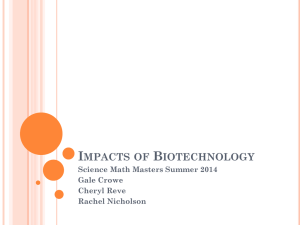Genetically Modified Organisms:
advertisement
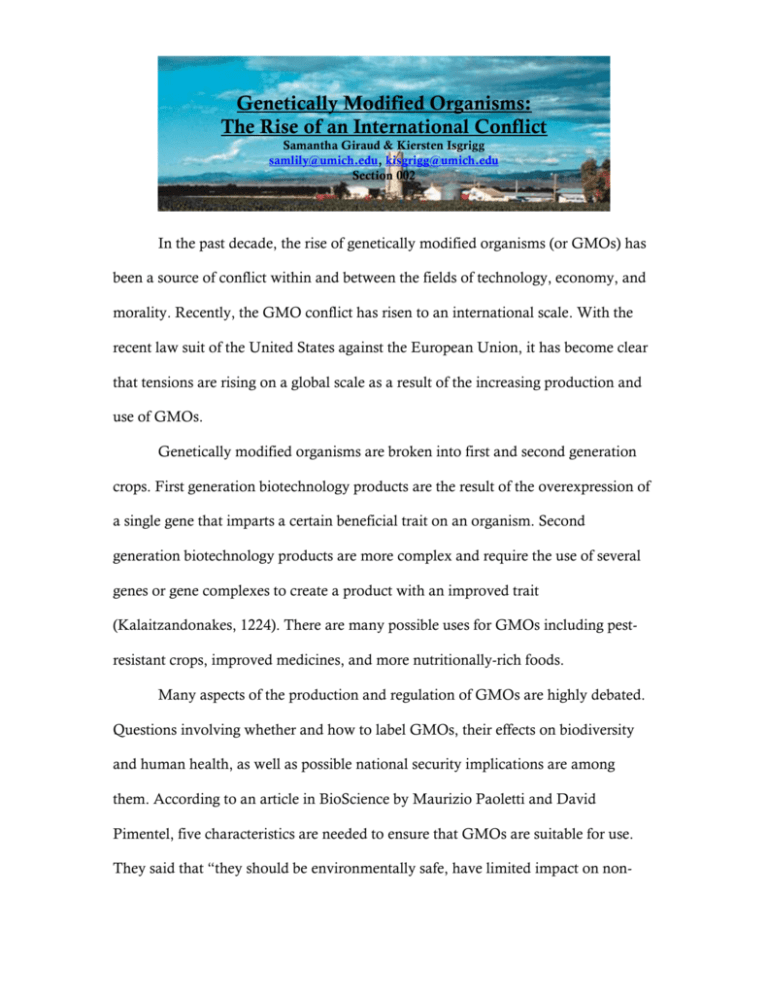
Genetically Modified Organisms: The Rise of an International Conflict Samantha Giraud & Kiersten Isgrigg samlily@umich.edu, kisgrigg@umich.edu Section 002 In the past decade, the rise of genetically modified organisms (or GMOs) has been a source of conflict within and between the fields of technology, economy, and morality. Recently, the GMO conflict has risen to an international scale. With the recent law suit of the United States against the European Union, it has become clear that tensions are rising on a global scale as a result of the increasing production and use of GMOs. Genetically modified organisms are broken into first and second generation crops. First generation biotechnology products are the result of the overexpression of a single gene that imparts a certain beneficial trait on an organism. Second generation biotechnology products are more complex and require the use of several genes or gene complexes to create a product with an improved trait (Kalaitzandonakes, 1224). There are many possible uses for GMOs including pestresistant crops, improved medicines, and more nutritionally-rich foods. Many aspects of the production and regulation of GMOs are highly debated. Questions involving whether and how to label GMOs, their effects on biodiversity and human health, as well as possible national security implications are among them. According to an article in BioScience by Maurizio Paoletti and David Pimentel, five characteristics are needed to ensure that GMOs are suitable for use. They said that “they should be environmentally safe, have limited impact on non- target organisms, not be present in human food, not cause pest resistance, and be able to be withdrawn form the environment if ultimately required” (668). As of present, many of these criteria are not being met by the majority of GMOs, causing conflict between various groups and nations. Our research focused on the opposing views of the A Polish ad campaign against GMO research. (http://www.ine-isd.org.pl/en/) US and Europe. As one may expect, Europe has a different outlook toward GMOs than the US. Europeans have experienced recent food scares such as Mad Cow Disease and Bird Flu that have left then skeptical of what they are eating. Additionally, Europe has deep traditions and culture revolving around food production and preparation. Their view is that we should take a precautionary approach to GMOs, as opposed to the “science-based” approach we have here in the US (Falkner, 301). This discrepancy came to a head earlier this year when the US, together with Canada and Argentina, decided to sue the European Union over the de facto Differences between European and American viewpoints on genetic issues. (Gaskell, 384) EU moratorium that lasted from 1998 to 2004, in which the EU did not allow any GMOs to be approved. The three countries alleged that the block was not scientifically justified, as required by the World Trade Organization. To counter this, the EU argued that it was its “sovereign right” as a free country to make that decision (BBC News). Because GMO research mixes issues of science and morality, conflicts are almost inevitable. Because of their distinct cultural viewpoints, tensions between the US and EU have brought the debate over GMO use to a global scale. Works Cited BBC News. “Q & A: Trade Battle over GM Food”. 2006. <http://news.bbc.co.uk/1/hi/world/europe/4690010.stm> (February 8, 2006). Borger, Julian et. al. “US Wins WTO Backing in War with Europe over GM Food”. 2006. <http://guardian.co.uk/gmdebate/Story/0,170531,00.html> (February 8, 2006). Falkner, Robert. 2000. Regulating Biotech Trade: The Cartegena Protocol on Biosafety. International Affairs. Vol. 76, No. 2: 299-313. Gaskell, George et. al., 1999. Worlds Apart? The Reception of Genetically Modified Foods in Europe and the U.S. Science. Vol. 285, No. 5426: 384-387. Haslberger, Alexander G. 2000. Monitoring and Labeling for Genetically Modified Products. Science. Vol. 287, No. 5452: 431-432. Kalaitzandonakes, Nicholas G. 2000. Agrobiotechnology and Competitiveness. American Journal of Economics. Vol. 82, No. 5: 1224-1233. Klintman, Mikael. 2002. The Genetically Modified (GM) Food Labeling Controversy: Ideological and Epistemic Crossovers. Social Studies of Science. Vol. 32, No. 1: 71-91. Leonhardt, David. 2003. “Talks Collapse on U.S. Efforts to Open Europe to Biotech Food”. <http://query. nytimes.com/gst/fullpage.html> (June 20, 2003). Munson, Abby. 1993. Genetically Modified Organisms: international policy-making and implications. International Affairs. Vol. 69, No. 3: 497-517. Paoletti, Maurizio G and David Pimentel. 1996. Genetic Engineering in Agriculture and the Environment. BioScience. Vol. 46, No. 9: 665-673. Pollack, Andrew. Biotech’s Sparse Harvest; A Gap Between the Lab and the Dining Table. New York Times. 2006. February. Final, Section C, Page 1, Column 2.
